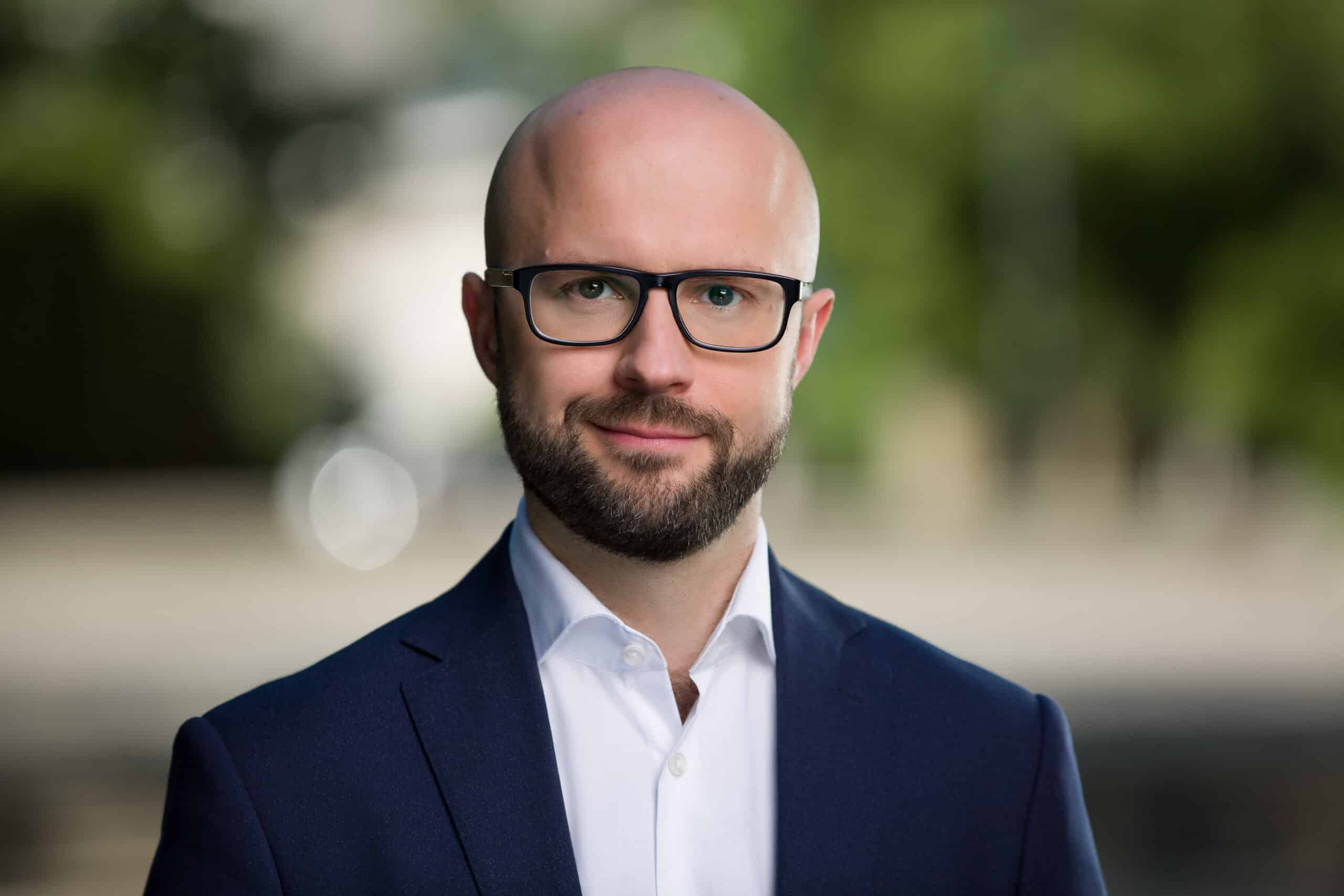Creating a global financial center in Poland
Sylwia Ziemacka talked to Paweł Widawski, Founder & CEO of FinTech Poland.
What is FinTech Poland?
The foundation was established in 2016. It was when the fintech boom began in Poland and throughout Europe. On this wave, organizations dealing with financial innovations, including us, sprang up in various European countries.
However, unlike those organizations that from the very beginning had the character of member organizations, we had a different profile for many years. We focused on research on the financial innovation sector, on the development of reports and analyses. We also worked with market participants, including representatives of the public sector. Our role was and still is to identify new phenomena, describe them and inspire the public and private sectors. We put a lot of work into identifying barriers to the development of the financial innovation sector in Poland, mainly those of a regulatory and supervisory nature. We have covered areas such as artificial intelligence, what we call regulatory technologies, decentralized finance, as well as various other phenomena that are rapidly developing in the financial sector.
Another important subject of our interest was how Poland is perceived abroad as a financial center, and as a center of financial innovation.
And how has it been perceived in recent years?
First of all, we noticed that there is a big discrepancy between what is happening in our fintech area and how we are perceived by our foreign partners. Despite the fact that what we do in this area is really of very high quality, it is not noticed enough
in the world. And if it is, it is in a way that is too vague and incomplete. We have a lot of work to do in this area.
Where have these conclusions led you?
This year, we decided to make our Foundation an organization associating participants of the (broadly understood) ecosystem of financial innovations in Poland. We created the FinTech Poland Ecosystem project and we have been acquiring members and partners for almost two months. We want to be an organization that is a place for meetings, interaction and joint work for very different actors on this complex financial scene – not only fintechs, i.e. technological or financial companies that focus on financial innovations, but also banks, consulting companies, media, law firms and companies offering infrastructure and financial technologies.
Such consolidation of the environment is effective, for example, in the process of cooperation with the regulator. At the same time, I would like to emphasize that we are not a chamber of commerce, which, for example, represents the interests of some group. On the contrary, we try to look for such common interests that connect the entire market and which no-one doubts should be developed.
That is why we organize meetings and conferences focused on networking, but we also undertake knowledge-building initiatives.
We have concluded agreements with entities such as the Polish Financial Supervision Authority and the Polish Investment and Trade Agency. Together we implement educational and research projects. We set up working groups that deal with very specialized issues that relate to finance.
What are you doing to increase the competitiveness or improve the image of the sector outside Poland?
An important area of our work is international. First of all, we try to reach not only national regulators and supervisors, but also European ones with our postulates. To this end, together with similar organizations like FinTech Poland in Europe, we have created the European Digital Finance Association, which is an independent industry body representing the digital finance community. Our mission is to support Europe’s global role in the financial technology sector.
In addition, in our international activities, we focus on promoting Poland and Polish fintechs abroad. We publish reports addressed to foreign recipients, e.g. How to do FinTech in Poland. We are currently working on the second edition of this publication, which aims to show the Polish market in a good light.
As part of our international promotional activities, I see potentially two different areas. One concerns the issue of building Poland as a modern financial center, the other is promoting Polish fintechs and scaling their operations to other markets.
We are talking here about the internationalization of our sector and we really mean two directions of action. The first is import of investors and talent from abroad to Poland, and on the other hand, export of what is made in Poland to help Polish entities in internationalization.
What is the biggest challenge from your perspective in this area?
It seems to me that this is still a big cultural challenge, because in Poland we still do not think globally. Most entrepreneurs believe that they first need to develop the Polish market in order to think about foreign markets. We are trying to change this mentality. In addition, together with the Polish Investment and Trade Agency, we are trying to create certain products, processes and solutions for Polish entrepreneurs in this sector to help them develop in other markets.
The PAIH has nearly 60 foreign trade offices around the world and is a very good platform supporting the internationalization of Polish companies. But the competition in this sector in the world is high. In order to be successful, we must develop marketing, sales and self-promotion skills, which are at a much higher level in our western colleagues, especially from the Anglo-Saxon countries. Often a product or service from Poland is at a higher level than the competition, but others win with better packaging (marketing?). We’re working to change that.
And what about building the image of Poland as a center of modern financial services?
This is a very important area of our activity. Analyzing various international rankings of financial centers, we noticed that Poland, or specifically Warsaw, has been falling for several years. Just a few years ago we were in the top forty in the world, but recently Warsaw’s position has weakened significantly. Not necessarily because the financial sector is developing less. Not necessarily because financial innovation is weaker. We just have a very poor image in the world. For various reasons, we are unable to neutralize this, and we have begun to think about what to do to change it.
Two years ago, together with Polityka Insight and MasterCard Advisory, we prepared the report “A new generation financial center – how to build it in Poland.” The report led us to several conclusions. First, we discovered that a lot of new financial centers have sprung up in recent years, because every country would like to have its own financial center. At the same time, these financial centers have different development strategies. Some try to forcefully copy London or New York, i.e. such old-type financial centers. This is very difficult. Some want to be next-generation financial centers, i.e. they do not necessarily want to be based on the capital market or the banking sector. They look for their competitive advantages in financial innovation, e.g. in sectors such as e-commerce. I will give the example of Berlin, which a few years ago was not perceived as a financial center at all, because Berlin has had little in common with the traditional financial sector. However, today the city in the world ranking of global financial centers is in 26th place.
It seems that the Baltic countries are also climbing in these rankings?
Yes, they are very determined to modernize their economies. We should be motivated too. Lithuania adopted a very progressive strategy of building a financial center in Vilnius a few years ago and this strategy has been very successful. They managed to attract investors not only from Europe, but also from around the world who specialize in a specific area, e.g. payment services.
Coming back to Poland, the report I mentioned allowed us to draw some conclusions regarding how to build a financial center in our country.
What are the conclusions?
First of all, we need to build the brand of the Polish financial center. We need to build good relations between the public and private sectors, so that both sides see the same goal, which is to build a modern financial center. We must define a very clear profile, i.e. a set of specializations of our financial center, and strive to ensure that we have optimal operating conditions in these specializations. Finally, we need an organizational structure that will coordinate the entire project and process, but will also have a mobilizing effect on all stakeholders. And we, as FinTech Poland, want to be just such a coordinator. We have already undertaken a number of organizational and substantive activities. We promote the idea of a modern financial center so that the financial sector is treated as important within the wider economic policy of the state.
I take it that’s not now?
I have a feeling it’s not today. There are more important sectors. And if we look at the approach of France, the UK or Germany, the financial sector and the innovative financial sector have always been treated as a priority there, because everyone knows that it is a carrier not only of development, but also of capital. And this is the basis of economic development.
Do you cooperate or see a common space for cooperation with representatives of shared service centers or global business centers located in Poland? Are there many financial institutions among them that can boast of truly innovative services in Poland?
This is a very good question, because in fact, most of the global financial institutions that conduct some operations here are already present in Poland conducting here their operations. These are very different operations, from simple activities to very sophisticated ones, such as cyber security or complex business processes. This is a great asset for Poland in the context of building a financial center and indeed, when we talk to those institutions that belong to this BSS cluster, they say that in their opinion this Polish financial center already exists and they feel a part of it. Therefore, BSS is a very important component of the Polish Financial Center.
In conclusion, I understand that you see great potential for the development of a modern financial center in Poland. We just need to skilfully use all our strengths and start communicating them properly outside?
I think Poland has been punching below its weight and we want to change that.







